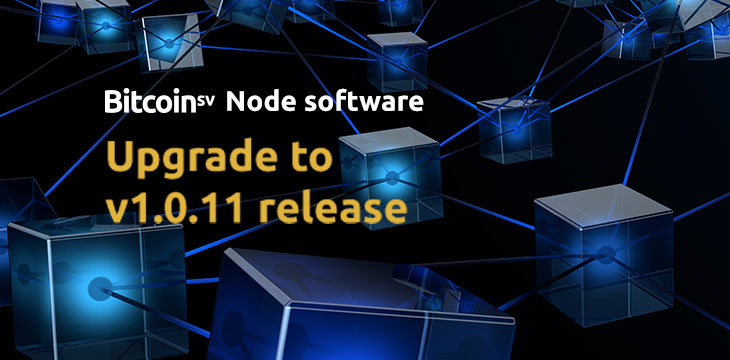|
Getting your Trinity Audio player ready...
|
Since the last SV node release, average block size and peak block size have gone up significantly across the BSV network with world record blocks set just this month. It is not infrequent that blocks approach 4GB each with transaction counts above 2 million, but we’re just getting started!
Found Fresh Bananas 🍌🍌
Block: 734,597
Size: 3.82 GB
Tx count: 2,461,300
Average fee: $0.00008
Total fees: 2.21 BSV
Total revenue: 8.46 BSV
Revenue from fees: 26.11%https://t.co/pXBTuKfWZi— BananaBlocks™ by GorillaPool🍌🍌 (@banana_blocks) April 10, 2022
As TAAL Distributed Information Technologies Inc. (CSE:TAAL | FWB:9SQ1 | OTC: TAALF) new CEO Richard Baker settles into the captain’s chair at the transaction processing magnate which leads the network in total hash power, he is glad to see his vision begin to get implemented, saying, “Delighted to have collaborated with the Bitcoin Association, nChain and innovative customers in bringing this new release of SV Node into the BSV Network promptly.”
The changing tone and posture on node releases has been welcome as TAAL has taken a more open and collaborative approach with transaction generators like Fyx Gaming and other transaction processors like SBI Crypto and GorillaPool. With that feedback, the new software comes with some welcome changes. Baker continues, “This release implements foundational bitcoin protocol logic, enables mining operators to set competitive transaction fees and eliminates the confusion around relay fees and dust limits that application and service builders rightly were frustrated with.”
“…we will constantly listen to the market, respect the protocol logic, and ensure we are making the adoption of BSV frictionless for all.”
Bitcoin SV Node v1.0.11 disables bloom filters
One of the more interesting changes in the new SV Node implementation is the deprecation of bloom filters by default (they’re still usable if an operator drills into the settings). This feature was sunset as a default policy in the BTC Core implementation (0.19.0) in late 2019 due to being too resource intensive for small computers. Small blockers, at the time, were lamenting the addition of bloom filters in the first place due to their belief that SPV was never possible in Bitcoin, and the notion that lite clients should be replaced by the Lightning Network solution that was first proposed about seven years ago.
But bloom filters being sunset in BSV is a little more interesting because they are incompatible with massive scaling due to the inefficient way that it breaks out address data for lite clients—essentially agreeing that it is also too intensive for BIG computers too! This is a welcome deprecation for node operators who want to see the software streamlined for efficient operation at scale.
Michael Boyd, the CTO of GorillaPool, had this to say on the topic: “it’s time for new tools and methods for wallets to handle and track transactions with the removal of the bloom filters. Looking forward to a proper SPV experience in bitcoin.”
Dust? What is Dust?
The rest of the work done in the new node software is essentially just housekeeping. The block-building nodes at the center of the network have been coordinating (and competing) on the best policies for minimum transaction and relay fees as well as dust policies, and now that the major firms have come to agree on new, lower policies on all fronts, the software has been trimmed to align with these more progressive policies.
-minrelaytxfee -dustrelayfee and -dustlimitfactor options have been removed altogether and there has been one name change: -blockmintxfee has been changed to -minminingtxfee.
It’s refreshing to see the software catch up to the policies that the nodes at the center of the network have been working toward over the last several months, and operators are installing this week while also expressing desires to focus on other pain points regarding policies and mempool bugs.
GorillaPool’s Boyd stating, “I’m installing it now across our nodes today. I’m glad there are efforts to remove the dust concept and simplify fee configurations. Hopefully the dust and relay changes help keep mempools across the nodes well in sync.”
Of course, there’s also detraction and chuckles to be had from within the ecosystem. Some would like to see more progress and broader issues worked on with more urgency, while others poke fun at the loosening of default policies in contrast to protocol enforcement that the small blockers desire.
Noooo miners can't choose their settings noooooo don't let them break my ras pi noooooo pls my node matters I'll UASF nooooooooooo
— Matthew Zietzke (@MZietzke) April 21, 2022
The BSV economy is hungry for progress, and while changes have been too slow for some, we celebrate the progress we have, while remembering that ultimately, we are here to do one thing: compete!
Watch: CoinGeek New York panel, How to Achieve Green Bitcoin: Energy Consumption & Environmental Sustainability

 02-28-2026
02-28-2026 




